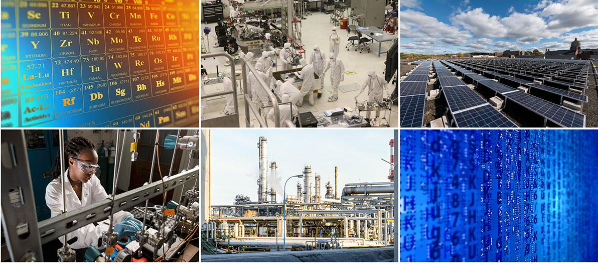Process Systems Engineering (PSE) focuses on a life cycle view of highly integrated and complex systems, beginning from ideation on a laboratory scale to the other end of spectrum relating to achieving manufacturing excellence and minimizing environmental impact. The
PSE research in the Department encompasses detailed system-wide dynamic modeling, often involving molecular details, on the one hand, to use of these dynamic models in optimal system design as well as devising system-wide optimal operating strategies, real time implementation of
fault detection & diagnosis, and optimal control in presence of operating constraints. The above quantification approaches are based on fusion of first-principles dynamic models with real-time data often in a Bayesian framework, in tandem with large-scale constrained optimization and AI-
ML techniques.
The PSE group is deeply involved in both, advancing knowledge in chemical engineering applications as well as developing new algorithms and methods to address challenges arising from emerging applications.
Broadly, the applications in PSE relate to: (i) Energy in the context of renewables (e.g. solar thermal power, biomass to energy) as well as improving efficiency of conventional systems (e.g. energy integration, fuel cell), (ii) Climate & Sustainability in the context of apportionment of pollution sources, sustainable reuse of water and management of water distribution networks, sustainable approaches to power generation, the nexus between food-energy-water-climate and methods to mitigate climate change, life cycle assessment of products and processes, circular economy, CO2 and biomass valorization, process safety and risk governance, (iii) Reaction-
Separation processes in the context of supercritical fluid engineering, simulated moving bed chromatography, batch process improvement, grade and rate transitions in systems with recycle, process integration and intensification.
In the methods and algorithms field in PSE, the group is engaged in (i) Control relevant modeling & Simulator Development including development of control relevant data-driven linear and nonlinear dynamic models as well as plantwide simulator platforms, (ii) Optimal sensor network designs to balance observability, fault isolability, and cost, (iii) State estimation methods for distributed parameter systems and Differential Algebraic Equation systems, (iv) Novel optimization algorithms in terms of decomposition strategies to solve large scale Mixed Integer Linear Programming, flowsheet-wide optimization, and multiparametric quadratic programming, (v) Advanced Process Control methods such as distributed Model Predictive Control (MPC), explicit MPC, economic MPC, adaptive MPC, nonlinear MPC and sub-optimal MPC, MPC stability and terminal region characterization, integration of constrained iterative learning control with external MPC, (vi) AI-ML in the context of physics-inspired neural networks for dynamic optimization, deep learning to speed-up nonlinear state estimation, classification of plastic wastes using image processing, in situ tuning of PID controllers using deep reinforcement learning.
Associated Faculty:

